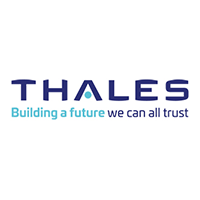 Thales | Security for What Matters Most
More About This Author >
Thales | Security for What Matters Most
More About This Author >
 Thales | Security for What Matters Most
More About This Author >
Thales | Security for What Matters Most
More About This Author >
Trust is the cornerstone of every successful relationship between businesses and their customers. On this Data Privacy Day, we reflect on the pivotal role trust plays in the digital age. It’s earned not just through excellent products or services but also through a steadfast commitment to protecting the data consumers share.
When businesses take control of their data practices—prioritizing transparency, security, and compliance—they send a powerful message: "We value your privacy." By championing data privacy, organizations don’t just meet regulatory obligations; they build enduring loyalty, ensuring customers feel secure in every interaction. After all, trust begins with safeguarding what matters most.
The Biggest Challenge in Security Today: Data Sovereignty
Data privacy is contextualized by the principle of data sovereignty, the idea that data is governed by the laws of the country in which it originated. This has the potential to help or hinder data privacy. Still, in general, regulations have been vastly in favor of consumer-leaning data privacy rights and the responsibility of organizations to keep private data safe.
However, the game is changing as companies ingest data to power their AI models. In the wake of breakneck advancements like Generative AI, the cement has yet to harden on the correct governance of these policies, leaving data privacy in the lurch as questions of data sovereignty are being settled – even as companies continue to move ahead.
A Thales recent report, Data Sovereignty: Who Owns Your Data and Can You Control It?, states, “The dominance of a small number of large technology companies is considered the driving force fueling the urgency of addressing data sovereignty.” Because data is today’s oil, and power follows money, the companies that own the data wield a proportionate amount of power. In the words of the report, “These companies control vast quantities of user data, giving them considerable influence over privacy, data protection, and the digital environment.” This is why coming up with answers to pressing data sovereignty issues is “not just a legal obligation but a strategic necessity for businesses.”
While the advent of AI in this space could be perceived as a challenge to data privacy, the attention it draws to the topic is also a timely boon. Although it raises the issue, the data privacy problem needs to be addressed, and it ties directly into the question of “Who controls your data?”
As companies strive to comply with compliance guidelines, maintaining proper data control is arguably the most important focus of all strategic security initiatives. Not only is it essential in a legal context, but it is also vastly important to consumers.
Consumers Do Business With Organizations That Protect Their Privacy
It is no surprise that today’s consumers want to establish business with companies that share their position on how data should be valued, protected, and preserved. Chris Harris, Thales Associate VP, Sales Engineering, noted, “Data privacy remains as a key factor in our perception of whether or not to trust a company.” Within a professional context, trust means business.
In the Thales 2024 Digital Trust Index, “The majority [of respondents] (89%) would consent for organizations to use their data – but only if certain caveats are met.” In other words, you can use my data, but on my terms. Given the fact that consumers’ data is the inroads into their lives (and they know what it’s worth), this attitude only makes sense.
That means that companies who want to stay competitive need to play ball. It is no longer an option to keep users in the dark about where their data is going (not in the compliance world, and not in the intangible world of customer satisfaction). Today, “as many as 87% of consumers also expect basic levels of data privacy to be met,” and they don’t want to suffer for it; more than a fifth (22%) will give up within sixty seconds if they encounter frustrating privacy-promoting practices like password resets and re-entering personal information.
It’s a tough road for companies to walk, but one that they must figure out how to navigate nonetheless if they want to stay at the forefront and give today’s consumers what they want: a frictionless, secure user experience. The right tools must be in place to balance these seemingly contradictory (or at least complicated) demands.
Maintaining Data Control When Odds Stack Against You
Companies wanting to keep that competitive edge (with privacy increasingly being the deciding factor) would do well to invest in data privacy measures, from employee awareness programs and basic data protection hygiene techniques to more advanced protections to maintain the necessary control of their customers’ data.
Thales offers a comprehensive portfolio of products to secure a world powered by applications, data, and digital identities. All these solutions communicate a strong signal, ‘We care about your data and who has access to it.’ Plus, they offer more than just security; they enhance customer experience, removing the friction that would cause individuals to jump ship.
The ability to give users what they want while offering them the privacy they need is a juggling act, but one that organizations are being asked to do in today’s fast-moving, privacy-conscious world. Data Privacy Day 2025 puts a spotlight on these demands, and data privacy tools from Thales can help companies carry them out.
For more in-depth insights on maintaining data control, download our 2024 Data Security Directions Council Report.